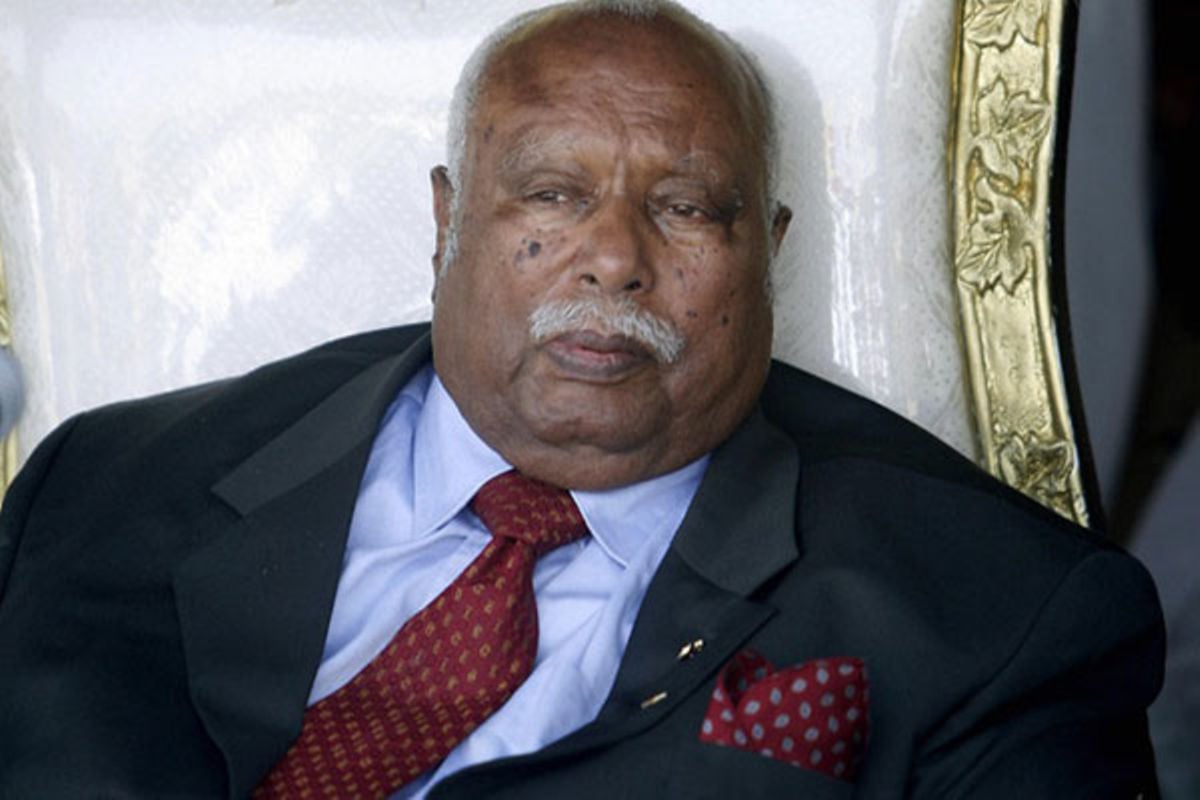Girma’s Life and Career: Ethiopia Girma

Girma Wolde-Giorgis, a prominent figure in Ethiopian history, is revered for his distinguished career spanning law, politics, and diplomacy. His life story is an inspiring testament to dedication, integrity, and unwavering commitment to his nation.
Early Life and Education
Girma Wolde-Giorgis was born on August 6, 1924, in the town of Ambo, Ethiopia. He received his early education at the Menelik II School in Addis Ababa, where he excelled in his studies. He went on to pursue a law degree at the University of Lyon in France, graduating with honors in 1950. Upon his return to Ethiopia, he joined the Ministry of Justice and quickly rose through the ranks, becoming a respected legal expert.
Legal Career and Political Involvement
Girma’s legal career was marked by his commitment to upholding the rule of law and ensuring justice for all. He served as a judge, a prosecutor, and a legal advisor to various government institutions. His expertise in law and his unwavering dedication to justice earned him the respect of his peers and the public. He also actively participated in the political landscape of Ethiopia, serving as a member of the Ethiopian Parliament and later as the Minister of Justice.
Diplomatic Service and International Recognition
Girma’s diplomatic career began in 1960 when he was appointed as Ethiopia’s ambassador to the United Nations. He served in this role for several years, representing Ethiopia with distinction on the international stage. He was also instrumental in establishing diplomatic relations with several countries. His dedication to international diplomacy and his commitment to fostering peaceful relations earned him international recognition.
Presidency of Ethiopia, Ethiopia girma
Girma Wolde-Giorgis was elected as the President of Ethiopia in 2001. He served in this role until 2010, becoming the first president to be elected by the Ethiopian Parliament. As president, he played a significant role in promoting national unity, fostering democracy, and ensuring stability. He also championed economic development and social progress, focusing on improving the lives of Ethiopians.
Personal Qualities and Leadership Style
Girma Wolde-Giorgis was known for his integrity, his humility, and his unwavering commitment to serving his country. He was a respected leader who commanded the trust and admiration of his people. His leadership style was characterized by consensus-building, diplomacy, and a deep understanding of Ethiopian culture and history.
Contributions to Ethiopian Society
Girma Wolde-Giorgis’s contributions to Ethiopian society are immeasurable. He played a key role in shaping the legal system, promoting democracy, and strengthening Ethiopia’s international standing. His legacy as a dedicated public servant, a wise leader, and a champion of justice continues to inspire generations of Ethiopians.
Presidency of Ethiopia

Girma Wolde-Giorgis served as the fourth President of Ethiopia from 2001 to 2018. His presidency was marked by a period of significant political and economic transformation in the country. He assumed office during a crucial time in Ethiopia’s history, following the end of the Derg regime and the transition to a multi-party democracy.
Transition from Derg Regime to Multi-Party Democracy
Girma’s presidency coincided with the transition from the Derg regime, a military dictatorship that had ruled Ethiopia for over 17 years, to a multi-party democracy. The transition was a complex and challenging process, marked by political instability and violence. Girma played a key role in fostering national reconciliation and promoting peace during this period. He facilitated dialogue between the different political factions and worked to establish a stable political environment.
Challenges During Girma’s Presidency
Girma’s presidency faced numerous challenges, including:
- Political Instability: The transition to a multi-party democracy was not without its challenges. There were tensions between different political parties, and some groups engaged in armed conflict.
- Economic Development: Ethiopia was a relatively poor country with a large agricultural sector and limited industrial development. Girma’s government faced the challenge of promoting economic growth and improving living standards.
- Regional Conflicts: Ethiopia has a long history of ethnic and regional conflicts. Girma’s government faced the challenge of managing these conflicts and promoting peace and stability in the country.
Achievements During Girma’s Presidency
Despite the challenges, Girma’s presidency achieved some significant successes, including:
- Political Reform: Girma’s government implemented significant political reforms, including the establishment of an independent judiciary and a free press.
- Economic Growth: Ethiopia’s economy grew significantly during Girma’s presidency, with the country experiencing an average annual growth rate of over 10%. This growth was driven by investments in infrastructure, agriculture, and manufacturing.
- Social Development: Girma’s government made significant investments in education and healthcare, leading to improvements in social indicators.
Comparison with Previous Leaders of Ethiopia
Girma’s presidency can be compared to previous leaders of Ethiopia in several ways:
- Haile Selassie I: Like Haile Selassie, Girma was a symbol of national unity and stability. Both leaders played a significant role in shaping Ethiopia’s identity and promoting national pride. However, Girma’s presidency was marked by a greater emphasis on democratic principles and human rights, unlike Haile Selassie’s rule, which was characterized by autocracy.
- Mengistu Haile Mariam: Unlike Mengistu, Girma was committed to democratic principles and the rule of law. Girma’s presidency was marked by a transition to a multi-party democracy, while Mengistu’s regime was a military dictatorship. Both leaders faced challenges in managing ethnic and regional conflicts.
Legacy and Impact

Girma Wolde-Giorgis’s presidency, though relatively brief, left a lasting impact on Ethiopia’s political, social, and economic landscape. His tenure witnessed significant transformations, many of which continue to shape the nation’s trajectory today. This section examines the key policies and initiatives that defined his presidency, exploring their long-term influence on Ethiopia’s internal dynamics and its standing in the international community.
Political Landscape
Girma’s presidency coincided with a period of significant political change in Ethiopia. He played a crucial role in facilitating the transition from a one-party state to a multi-party system. This transition, marked by the adoption of a new constitution in 1995, ushered in a new era of political pluralism. Girma’s commitment to democratic principles and his role in overseeing the transition laid the foundation for a more inclusive political landscape.
Social Reforms
Girma’s presidency witnessed a number of social reforms aimed at improving the lives of Ethiopians. One notable initiative was the introduction of a new education system that emphasized access to quality education for all citizens. This reform aimed to address long-standing inequalities in educational opportunities and empower individuals through knowledge. Additionally, Girma’s administration made significant strides in promoting gender equality and empowering women. This commitment to social justice was evident in policies aimed at increasing female representation in government and promoting women’s economic participation.
Economic Growth and Development
Girma’s presidency coincided with a period of significant economic growth in Ethiopia. This growth was fueled by investments in infrastructure, agriculture, and manufacturing. His administration implemented policies that encouraged foreign investment and promoted the development of key sectors of the economy. While these policies contributed to economic growth, they also highlighted the need for greater attention to issues of inequality and sustainable development.
International Relations
Girma’s presidency saw Ethiopia play a more active role in international affairs. He actively engaged with the international community on issues of peace and security, particularly in the Horn of Africa. Girma’s efforts to promote regional stability and cooperation earned him recognition as a key figure in fostering peace and diplomacy in the region.
Ethiopia Girma is a name that often pops up in discussions about contemporary art. His work often explores themes of identity and social commentary, using bold colors and expressive forms. It’s interesting to see how his artistic journey might have been influenced by figures like Kenneth Rooks , a prominent figure in the art world known for his abstract expressionism.
Girma’s use of vibrant colors and bold shapes seems to echo Rooks’ legacy, showing how artistic influences can inspire new generations of artists.
Ethiopia Girma, a name that resonates with the spirit of endurance, has a lot in common with another incredible athlete, Soufiane El Bakkali. Both have shown us what true grit and determination can achieve on the track. Girma’s unwavering focus and dedication are inspiring, and El Bakkali’s explosive finishes are a testament to his talent.
These two athletes remind us that with passion and hard work, anything is possible.